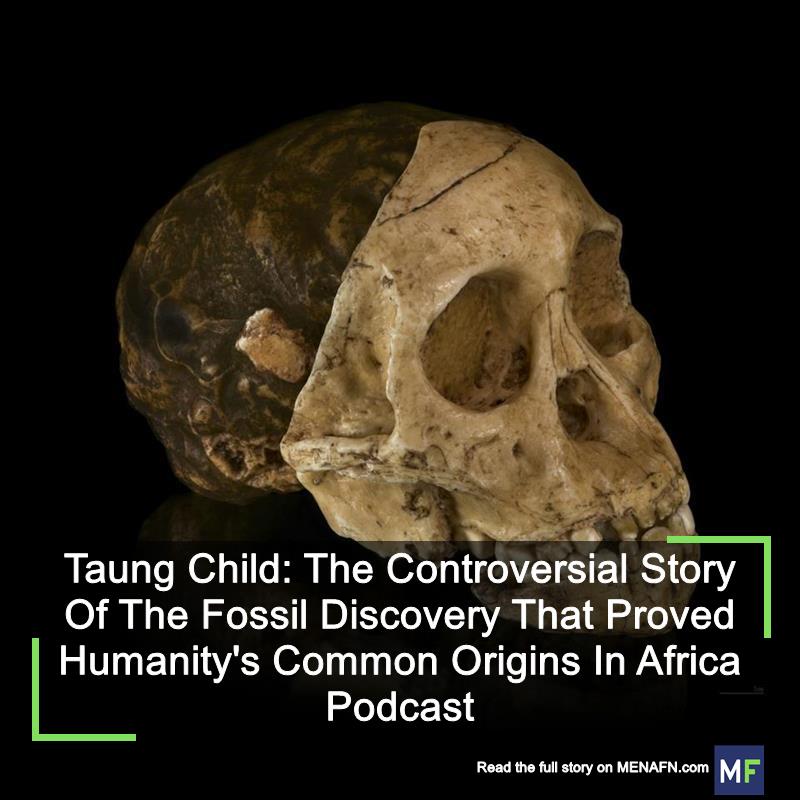
Taung Child: The Controversial Story Of The Fossil Discovery That Proved Humanity's Common Origins In Africa Podcast
The paper's author, an Australian-born anatomist called Raymond Dart, argued that the fossil was a new species of hominin called Australopithecus africanus. It was the first evidence that humanity originated in Africa.
In this episode of The Conversation Weekly podcast, we talk to science historian Christa Kuljian about Dart's complicated legacy and to paleoanthropologist Dipuo Kgotleng about what's happened to the city of Taung itself, and how paleoanthropology has changed over the last century.
When Dart's paper was first published, it was roundly ridiculed by his scientific peers. Charles Darwin had a hunch that all humans had common origins in Africa, but archaeologists at the time weren't looking for evidence on the continent, as Kuljian, a research associate at the University of Witwatersrand, explains:
Dart's contribution eventually proved this to be wrong. But at the same time, Dart, like many scientists working in Europe and the US in the early 20th century, was engaged in disturbing and racist anthropological practices, says Kuljian.
Not just one 'hero'Alongside Dart's own complicated legacy, researchers are also reassessing the way discoveries like the Taung child skull are commonly told: through the lens of a solo, white, hero like Indiana Jones.
What's missing, says Kgotleng, director of the Palaeo Institute at the University of Johannesburg, are often the stories of the“hidden figures” behind such discoveries. For example, the rock that contained the Taung skull was put aside by local mine workers who recognised its potential significance and passed it onto Dart's colleague. Kgotleng argues:
Kgotleng, who used to work as the archaeologist at Taung, says that today the town“generally looks like it's still stuck in the 1920s”. She says that many local people know little about the significance of the fossil find and that“the knowledge about the science has not filtrated through to the locals”.
Listen to the conversations with Kuljian and Kgotleng on The Conversation Weekly podcast, which also includes an introduction from Natasha Joseph, science commissioning editor at The Conversation Africa. Kuljian and Kgotleng both also contributed papers to a special issue of the South African Journal of Science to mark the centenary of Dart's article.
This episode of The Conversation Weekly was written and produced by Katie Flood with assistance from Mend Mariwany and hosted by Gemma Ware. Sound design was by Eloise Stevens and theme music by Neeta Sarl.
Listen to The Conversation Weekly via any of the apps listed above, download it directly via our RSS feed or find out how else to listen here .

Legal Disclaimer:
MENAFN provides the
information “as is” without warranty of any kind. We do not accept
any responsibility or liability for the accuracy, content, images,
videos, licenses, completeness, legality, or reliability of the information
contained in this article. If you have any complaints or copyright
issues related to this article, kindly contact the provider above.

















Comments
No comment